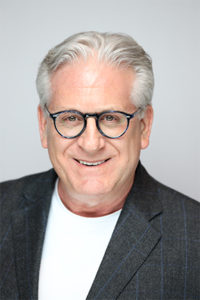“Bruce enables executives to transform their hidden wisdom into insight that yields powerful results.”— Chip Bell, CEO, Chip Bell Group
About
Bruce has been consulted by global executive leaders for over 40 years and is one of America’s most accomplished, experienced and trusted advisors to CEOs, boards and senior executive leaders.
Bruce has worked in dedicated advisory relationships with more CEOs, Boards, and C-Suite executives than anyone, anywhere. He’s a leader’s teacher. His depth of experience advising and facilitating insights for strategy, culture, change leadership, and business growth is unmatched.
His knowledge, insight, and experience are far-reaching, from Fortune 100 companies and the largest professional services firms to entrepreneurial startups and not-for-profits. His study of human character and human capability has led him to discover how the brilliance of leadership at all levels can manifest itself in all we do.
Bruce has spent over four-decades exploring the dimensions of leadership. He has focused on the merits of two competing and yet compatible theories, both articulated by Adam Smith in the 18th century. First, economic logic with its attendant leadership issues of authority, power, status and the “invisible hand of the market;” and second, moral philosophy with its attendant problems of humility, coherence, wisdom and the “greater interests of others.” A capitalist at heart, Bruce has demonstrated, many times over, that only a balance of these two principles can create long-term growth, profitability, prosperity, and sustainability.
The core of his practice is centered on establishing the conditions that promote human brilliance at every level and consciously leading that transformation through a process he calls Getting to Insight™. He has discovered that organizational cultures that are free of doubtful predisposition, obsessive political worry and personal apprehension can rapidly evolve to a natural state of collective brilliance that allows a fundamental problem-solution system to create real competitive advantage.
Bruce’s journey beyond the classroom and boardroom has taken him from San Francisco, Chicago, LA, Toronto, Washington, Palenque and Chaco Canyon, to London, Srebrenica, Prague, Ganeshpuri, Johannesburg, Lyon, and Auschwitz-Birkenau. He has witnessed and debated leadership through its historic impact on people and culture — studying the influential and the influenced, the victims and villains, the vanquished and defeated, the architects and artists, the leaders and followers. In his view, for the student of leadership there are stark contrasts and common axioms that embrace noble, constructive acts and abusive ones — understandable when one views the world authentically through the lens informed by authority, leadership, trauma, culture and organizational effectiveness

“Leadership, by its nature, is always a work in progress,” says Bruce, “but if I were to extract an insight at this point, whether it’s about the contrasting examples of an American CEO, a compliant Birkenau engineer or Nelson Mandela, it is this: the brilliance of leadership is anchored in values not abilities, purpose not objectives, insatiable learning not egoic satisfaction, and internal fulfillment not external accumulation.” He adds: “A common denominator is that brilliant leaders have a personal strategy that’s fixed firmly in trust, humility, inner growth and a greater interest in others. So we all benefit when they dare to do the right thing.”
Bruce says: “Millions of dollars – and opportunities – might be wasted on leadership development programs in cultures of disengagement and disrespect. Leadership is learned through emulation, not training programs and books. Where there are only nominal leaders, only nominal leadership evolves. Where there is self-absorption and greed, only disengagement evolves.” He says: “If leaders are to be successful, I believe they must create organizational cultures and strategies that work together for a higher purpose. Only brilliant cultures deliver brilliant performance.”
Bruce detected his mission early. Nowhere is mission better understood and deployed than in the leadership culture of the US Navy, and he was quick to discover his interest in the coherence of mission, strategy, and accountability. His talent and dedication soon took him from Supply Officer on a destroyer to Admiral’s Aide at a significant command. Over an intensive two years, while serving full-time as Admiral’s Aide, he completed his “Off-Campus MBA” from Southern Illinois University, finishing at the top of his class. Before the Navy, Bruce received a BA in Economics from DePauw University.
Bruce has been a trusted advisor to senior executives for decades, and today he is helping organizations reimagine how they can expand their performance capacity and consciously transform and sustain their culture, mission, and strategy from what it is to what it can be.
EDUCATION:
M.B.A., General Management, Southern Illinois University, while serving full time as an admiral’s aide in U.S. Navy
B.A., Economics, DePauw University, Greencastle, Indiana
“Between stimulus and response there is a space.
In that space is our power to choose our response.
In our response lies our growth and our freedom.”
–Viktor Frankl


